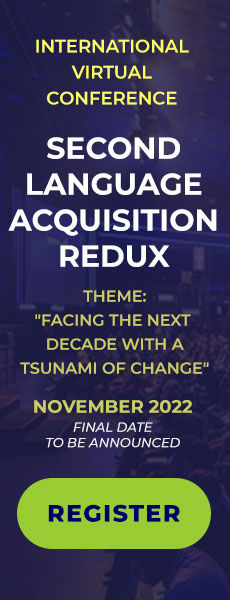Functional Grammar Systemic Approach in Selected Essays of Junior High School Students: A Metadiscourse Analysis
Keywords:
Metadiscourse, transitions, frame markers, hedgers, boosters, attitude markers, engagement markers, self-mentionsAbstract
The study determined the metadiscourse frequently occurring in a writing discourse genre among selected junior high school students of San Antonio Integrated School, San Antonio, Science City of Muñoz, Nueva Ecija. The study followed the descriptive qualitative design of research. Female respondents slightly outnumbered the males. Most respondents used Tagalog at home, were Catholics, and had either their fathers or their mothers working. The study revealed the most frequently used transitions, frame markers, hedgers, boosters, attitude markers, engagement markers, and self-mentions. Findings also indicated that no significant relationship was noted between sex and metadiscourse, language used at home and metadiscourse, religion and metadiscourse, parental work and metadiscourse.
References
Adel, A. (2006). Meta-discourse in L1 and L2 English. John Benjamins.
Adel, A. (2008). Meta-discourse across culture. Contrastive Rhetoric: Reaching to Intercultural Rhetoric, 45-62.
Alotaibi, H. (2016). Comparison of Metadiscouse Markers in Arabic and English Research Articles in the Introduction and Conclusion Sections. The Linguistics Journal, 10(1), 182.
Austin, J. L. (1962). How to do things with words. Oxford University Press.
Beauvais, P. J. (2009). A speech act theory of meta-discourse. Written Communication, 6(1), 11-30.
Blagojevic, S. (2009). Meta-discourse in academic prose: A contrastive study of academic articles written in English by English and Norwegian native speakers. Studies about Linguistics, 5(1), 1-7.
Crismore, A., Markkanen, R., & Steffensen, M. S. (2008). Meta-discourse in persuasive writing a study of texts written by American and Finnish university students. Written Communication, 10(1), 39-71.
Dahl, T. (2008). Textual meta-discourse in research articles: a marker of national culture or of Academic discipline. Journal of Pragmatics, 36(10), 1807-1825.
Ewer, V. (2009). Exploring Interaction in Writing. Silver Press.
Faghih, E., & Rahimpour, S. (2009). Contrastive rhetoric of English and Persian written text: Meta-discourse in applied linguistic research articles. Rice Working Papers in Linguistics, 1(1), 92-107.
Gonzales, S. (2009). Politeness in Letters to the editor in Philippine English, American English, and Singaporean English. Philippine Journal of Linguistics, 3, 19-36.
Grey, C. (2010). Towards an overview on gender and language variation. Alberman.
Halliday, M. A. K. (2007). An introduction to functional grammar (2nd ed.). Edward Arnold.
Herring, S. C., & Paolillo, J. C. (2006). Gender and genre variation in weblogs. Journal of Sociolinguistics, 10(4),439-459.
Holmes, J. (2008). Doubt and certainty in ESL textbooks. Applied linguistics, 9(1), 21-44.
Hong, H., & Cao, F. (2014). Interactional meta-discourse in young EFL learner writing: A corpus-based study. International Journal of Corpus Linguistics, 19(2), 201-224.
Hyland, K. (2008). Disciplinary interactions: Meta-discourse in L2 postgraduate writing. Journal of second language writing, 13(2), 133-151.
Hyland, K. (2004). Metadiscourse in academic writing: A reappraisal. Applied Linguistics.
Janssen, A., & Murachver, T. (2009). The relationship between gender and topic in gender-preferential language use. Written Communication, 21(4), 344-367.
Kopple Vande, W. J. (2007). Meta-discourse, discourse, and issues in composition and rhetoric. In E. L. Barton, & G. Stygall (Eds.), Discourse studies in composition (pp. 91-114). Hampton Press.
Lin, W. (2014). On metadiscoursal features of Chinese university students’ oral English: A perspective from chunks. US-China Foreign Language, 12(5), 402-410.
Magistro, E. (2007). The multilingual classroom: New rhetorical frontiers in L2 writing. College Quarterly, 10, 2.
Mao, L. (2008). I conclude not: Toward a pragmatic account of metadiscourse. Rhetoric Review, 11(2), 265-289.
Mardani, T. (2014). Metadiscourse Markers: Explicit Instruction and EFL Learners' Translating Performance. The Iranian EFL Journal, 10(5), 244.
Mauranen, A. (2008). Cultural differences in academic discourse: Problems of a linguistic and Cultural minority. The competent intercultural communicator, 157-74.
Myers, G. (2010). The pragmatics of politeness in scientific articles. Applied Linguistics, 10, 1-35.
Searle, J. R. (1969). Speech acts: An essay in the philosophy of language. Cambridge University Press.
Tabataba’I, A. & Beheshti, S. (2015). A comparative analysis of interactional metadiscourse markers in the Introduction and Conclusion sections of mechanical and electrical engineering research papers. Iranian Journal of Language Teaching Research, 3(1), 37-56.
Tan, H., & Eng, W. B. (2014). Meta-discourse use in the persuasive writing of Malaysian undergraduate students. English Language Teaching, 7(7), 26-39.
Tannen, D. (2010). Gender and Discourse. Oxford University Press.
Taweel, A. Q., Saidat, E. M., Rafayah, H. A., & Saidat, A. M. (2011). Hedging in Political Discourse. The Linguistic Journal, 5(1), 194.
Tse, P., & Hyland, K. (2008). Meta-discourse. Applied linguistics, 25(2), 156-177.
Williams, J. M., (2009). Style: Ten Lessons in Clarity. Harper Collins Publishers.
Van Dijk, T. A. (2007). Discourse, Ethnicity, Culture and Racism. In: van Dijk, T. (Ed.),
Discourse as social action. Sage Publications.
Downloads
Published
How to Cite
Issue
Section
License

This work is licensed under a Creative Commons Attribution 4.0 International License.
Authors retain copyright and grant the journal right of first publication with the work simultaneously licensed under a Creative Commons Attribution (CC-BY) 4.0 License that allows others to share the work with an acknowledgment of the work’s authorship and initial publication in this journal.






